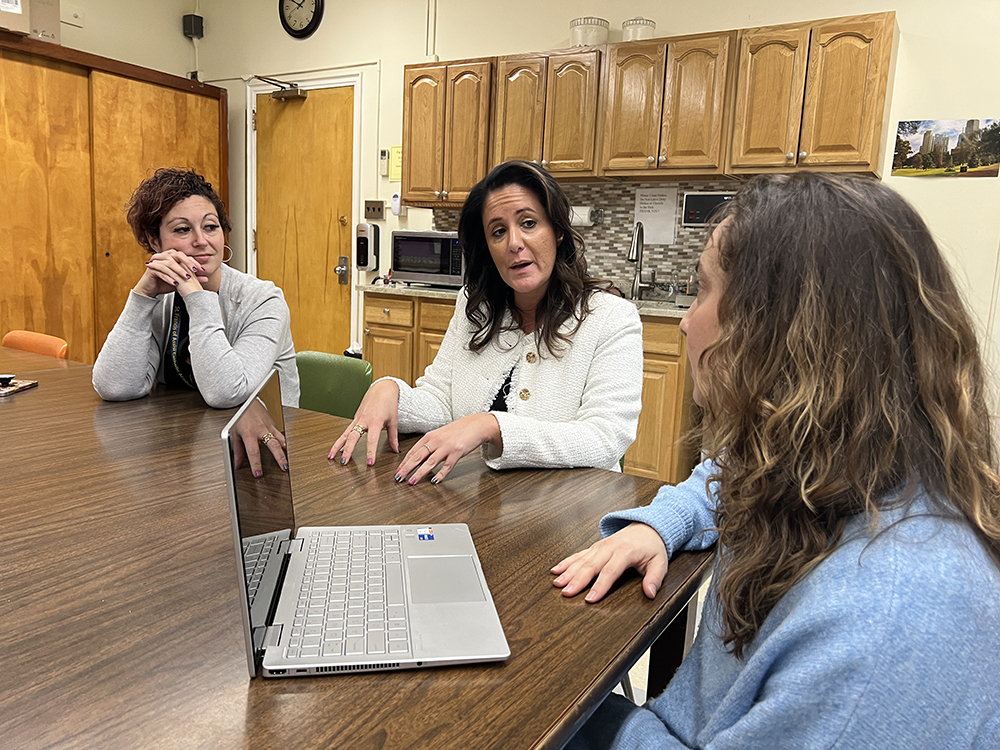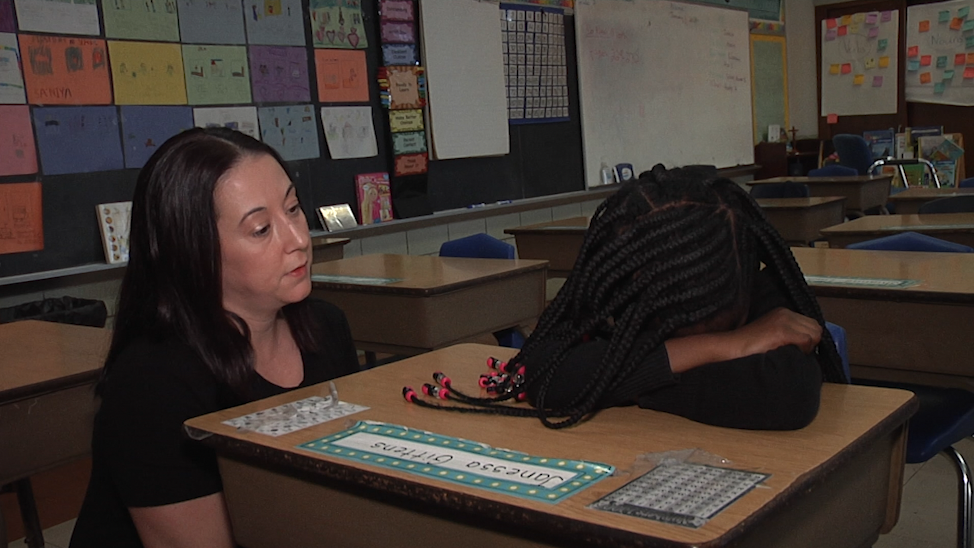
ASTORIA — For Kristen Gittens, sitting down to do homework with her 6-year-old daughter used to be a guaranteed disaster. Throughout her early education and first grade, Janessa Gittens struggled to pick up subjects like reading or spelling, and her anxiety coupled with frustration would lead her to break down into tears. She was terrified to get answers wrong, and it would completely overwhelm her.
“The tears just come out of nowhere and I can’t hold the tears in,” Janessa said. “I can feel sad, and sometimes I feel mad.”
Now in second grade, she hasn’t felt the same level of uncontrollable frustration. With the support provided by Midwood Catholic Academy, Janessa now has an individualized education service plan, or IESP, to ensure her needs are met in the classroom.
The plan details her need for additional support in reading comprehension and mathematics, both of which are provided in a classroom setting with one-on-one teaching and group lessons.
Midwood Catholic Academy was one of the 30 original schools in the Diocese of Brooklyn to receive funding from a Mother Cabrini Grant. Under the program, educational “coaches” are placed into classrooms to provide resources and support to teachers, so they can help students who are falling behind academically or emotionally.
Now, 10 additional schools will get funding from the grant to further the diocese’s effort to create a system that can support those who learn differently or at a different pace than other students.
“When they told me she could get evaluated and get the help she needs here while still going to a Catholic school, while still practicing her faith, while still learning about religion and about God, [and get] the same thing that the public school gets if not better, I was ecstatic,” Kristen Gittens said.
Janessa has been taught how to control her breathing, given positive verbal reinforcements, and visual guides to help her in-class comprehension.
Janessa’s second-grade teacher, Kimberly Farula, received guidance from these coaches about two years ago. She had the opportunity to work with Janessa during summer school before starting this current school and has already seen a tremendous leap in her progress thanks to the additional tools she can provide her.

For the first time, Janessa is almost reading at her grade level and has coping mechanisms to respond to those feelings of frustration that used to control her.
“You have to be open to it,” Farula said. “If you are open to it, then it basically offers you more opportunities to help a child.”
As private institutions, Catholic schools receive less funding from the state as compared to what is provided by the Department of Education. However, individuals and organizations write grants that provide similar opportunities for Catholic school students, said Luisa Manzo, the special education field representative for the Diocese of Brooklyn.
In her role, Manzo works closely with the coaches and teachers in the diocese to implement the best learning procedures for students. She advocates for students with IESPs, helping them find the schools that can best support them.
For example, she ensures that classrooms have a Special Education Teacher Support Services (SETSS) provider, who consults with teachers in efforts to enhance a child’s performance.
Schools and parents have become more aware of the students who need educational support, Manzo said, so there has been an increase in service requests and evaluations.
“I will not stop at anything to help a parent, to help a principal, to help a student get what they need and what they deserve,” Manzo said.
St. Francis of Assisi Catholic Academy in Astoria is among the 10 additional schools receiving funding from the Mother Cabrini grant. With these services and continual educational support, Elizabeth Reilly, the principal at St. Francis of Assisi, is looking to increase enrollment at her school — which already saw a 9% increase last year.
Throughout the decade she has been in education, Reilly says she has seen Catholic schools become more open to welcoming students with IESPs. Differentiated instruction that does not pull students out of the classroom allows them to feel part of the community, she adds.
“We offer something here that the public school children cannot get, which is a faith-based education, and being able to open the doors to many different learners makes a world of difference,” Reilly said.
Amy Marelli, the current math coach at St. Francis of Assisi Academy, will step into the role of the special education coach at the school.
Contracted by Generation Ready, Marelli is currently serving as the special education coach at two other schools in the Diocese of Brooklyn and hopes that her familiarity with the students and teachers at St. Francis of Assisi will allow her to step into this position seamlessly.
“In a Catholic school, I think that it’s easier to tailor the instruction to what the students need rather than in a public school,” Marelli said. “There’s not a lot of meshing that I saw happening in a public school.”
